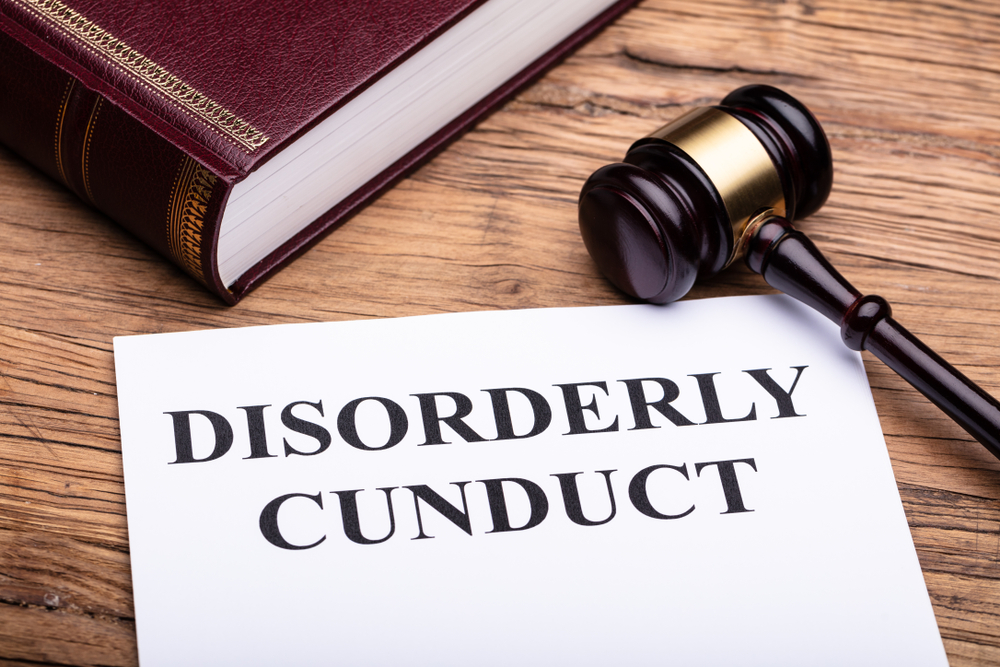Disorderly conduct is a term that often finds its way into legal conversations, news headlines, and even everyday discussions. While it may seem straightforward, it’s a complex legal concept that varies from state to state. In Connecticut, understanding the intricacies of disorderly conduct laws is essential.

In this article, experts in bail bonds for disorderly conduct in CT aim to shed light on its complexities and consequences. By gaining a deeper comprehension of the offense, individuals can make more informed decisions and navigate the legal system with confidence. Read on!
What is disorderly conduct?
Disorderly conduct refers to a broad range of behaviors that disturb the peace and order of a community or cause a disturbance in public places. These behaviors typically involve actions that are offensive, disruptive, or potentially harmful. The charges can arise from various situations, such as public fights, excessively loud arguments, offensive language, or engaging in tumultuous behavior.
The definition
In Connecticut, it’s defined under Connecticut General Statutes Section 53a-182. According to the statute, a person is guilty of the offense if they engage in fighting, violent, or threatening behavior, create a hazardous or physically offensive condition, or use abusive or obscene language. It’s important to note that it’s a subjective offense, meaning the perception of the behavior by others plays a significant role in determining charges.
The penalties
Disorderly conduct is considered a Class C misdemeanor in Connecticut. Individuals may face penalties such as fines of up to $500 and imprisonment for up to three months if convicted. Additionally, these charges can leave a lasting impact on an individual’s criminal record, potentially affecting employment opportunities, housing applications, and more.
The defenses
Several defenses can be utilized in these cases. It’s crucial to consult with a qualified attorney to determine the best defense strategy based on the circumstances. Common defenses include exercising the right to free speech, challenging the intent or interpretation of the behavior, or arguing that the conduct did not disturb the peace or present a public disturbance.
Relation to domestic violence
These charges often arise in the context of domestic violence cases. In Connecticut, when the act occurs between family or household members, it may be charged as a family violence offense. This classification carries additional consequences, such as mandatory counseling, protective orders, and potential limitations on firearms possession.
The arrest
Law enforcement officers have the authority to arrest individuals suspected of disorderly conduct if they believe the behavior poses an immediate threat or risk to public safety. Following an arrest, individuals may be taken into custody and later require bail bond services to secure their release while awaiting trial.
The role of a bail bond company
If someone you know has been arrested for this offense, a bail bond company can provide valuable assistance. By posting bail on behalf of the accused, the company helps secure their release from custody, allowing them to continue their daily lives while preparing their legal defense. Bail bond services play a crucial role in ensuring that individuals have access to due process and legal representation.

Who provides bail bonds for disorderly conduct in CT?
At BailCo Bail Bonds Manchester, we understand the complexities surrounding cases of disorderly conduct and are here to provide professional assistance when you need it most. With our extensive experience and expertise, we’ve developed a reputation for efficiently navigating the legal system to secure the timely release of individuals facing charges related to disorderly conduct. Whether it’s a late-night arrest or a weekend incident in New Haven County or another part of the state, our 24/7 availability ensures that we’re ready to offer swift and reliable services to assist you during this challenging time. Don’t waste precious time and give us a call today!
